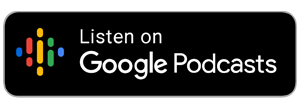Meet Chava Shapiro.
As our Director of Content and Community, Chava builds brand awareness and community reach for Ptex. As internal culture ambassador, she lights up the room with genuine good cheer and lively discussion wherever she goes.
Chava is also the gal behind our popular People of Ptex Series, and in this edition, we’re finally flipping the camera around and learning the process behind her magic and her unique perspective on content marketing.
So, I know your official role at Ptex is “Director of Content and Community” — I’m sure people are wondering, what does that actually mean?
I work with our CEO, Meny Hoffman, on building a sense of community both externally, within the business community, and internally with our team.
Externally speaking, I work with Meny to develop educational content and initiatives that help business owners become better leaders. Spreading business knowledge and practical know-how to our diverse “Let’s Talk Business” community is a huge part of what Ptex is all about. It’s a natural outflow of our commitment to helping business owners succeed.
Internally, I run initiatives to make sure we have a positive work environment, that people are happy, and that team members have opportunities to grow and advance their knowledge. To produce great work for our clients, it’s very important that we feel connected to each other and work as a true team.
How did you end up in that role?
I actually joined Ptex as a copywriter in early 2017. Then I ended up working on that year’s Let’s Talk Business Summit, which led me to transition into my current role.
What’s your professional background? How did you end up in the field of content marketing?
I actually went to college and got a degree in public policy. I wanted to create positive change in the world and saw myself working in the non-profit world. At the time, I viewed the business world as aggressive and self-serving. Of course, after working with so many businesses and entrepreneurs I know that’s not the case at all, and I’ve realized that businesses can change the world, too, when they’re focused on providing real value.
My professional background is in curriculum development for adult education. I worked at the Jewish Learning Institute as an editor, developing and writing courses on a myriad of Jewish topics for adults who did not grow up with a strong Jewish education. It was very challenging work, but it really prepared me for the world of marketing. I was just selling ideas, rather than products or services.
Can you explain that a little more?
My goal at JLI was to present Jewish ideas in a way the teachers—and through them, their students—could really understand and connect to. Which is actually the same thing that companies do when they sell their products or services. Except, in my opinion, ideas are one of the hardest things to sell. You have to change people’s paradigms of thinking and undo layers of misunderstanding and misconception.
At the end of the day, businesses aren’t solving the problems that many of them think they’re solving. They’re solving deeper, more internal and psychological problems. Learning how to get to the core of what’s challenging your customers (or students) on a psychological, existential, personal level, and then showing them how a certain tool/perspective/service/product can help them overcome those challenges and reach their goals…. That’s what marketing is all about.
As someone who is continuously writing and developing content, what’s your advice to others who want to develop their writing and content-creation skills?
To be most effective, it’s important to learn what your unique voice is, what unique expertise you bring to the table, and make sure your content sounds more-or-less the way you would actually speak. Complex sentences and jargon-filled articles may make you look really smart, but it’ll do little to help you connect to your audience. They’re looking to see if you really understand the problems they’re dealing with and whether you have the expertise to solve them.
I always say there’s no such thing as “B2B”, just “H2H,” human to human. People don’t buy from businesses, they buy from people. They want to buy from brands they feel connected to and trust on a human level. Bottom line, you have to be careful, because it doesn’t take much to ruin that human connection. As soon as you present content that’s jargony, cluttered, pretentious, or robotic, you’ve lost them.
And that might explain why the Let’s Talk Business content and initiatives have really touched people in the business community. They speak to people’s real experiences and challenges.
Right. It’s not only about delivering consistent great content. It also comes down to building a rapport, building trust, building a community—as Seth Godin would say, a “tribe”—around shared values and ideas. For Ptex, the Let’s Talk Business articles, podcasts, events, workshops, masterminds, all the free educational content we provide — even down to the book reviews by our team that we post on social media, all of those humanize us as a company and prove that we really do care about helping businesses, even those not ready to be our clients. We don’t just talk the talk; we walk the walk.
I know you’re a classically trained singer, and I’ve heard you speak about how that helps you be a better writer and communicator. Can you explain that?
There’s a rhythm to language helps us process information. And so part of writing is making sure the pace feels comfortable to readers. Creating that rhythm involves cutting clutter out and knowing when to use longer sentences vs smaller ones, one-syllable words vs three-syllable words, etc. Music is a sense-making device, much like story. I think my mind is just wired to want to organize things in a systematic way to make sense of them.
What’s one surprising thing you’ve learned over the past 2.5 years at Ptex?
That vulnerability is a huge factor in success in business, especially in the creative industries, but really in every industry. People respond genuinely when you’re open and real and imperfect. It’s nice to share success, but when you’re brave enough to show the messy side of business, when you can wrestle with certain challenges openly instead of pretending they don’t exist, people appreciate that and like and trust you more because of it.
Is there any personal philosophy you try to live by professionally?
“It doesn’t cost anything to be kind.” Which reminds me of another: “Everything you really need to know you learned in kindergarten.”
We need to remember the basics, the things our teachers taught us when we were young: be nice, be kind, be generous. If you need to give critical feedback or tell someone what they might not want to hear, it doesn’t hurt to begin with a word of appreciation or point out something positive to cushion the blow. And If you have something nice to say? Just say it, don’t overthink it. Being kind is free. And it pays back 1000-fold.
Favorite book?
If we’re talking business related, Building a StoryBrand by Donald Miller
—
Follow Chava at @chava_shapiro and connect with her on LinkedIn here.





